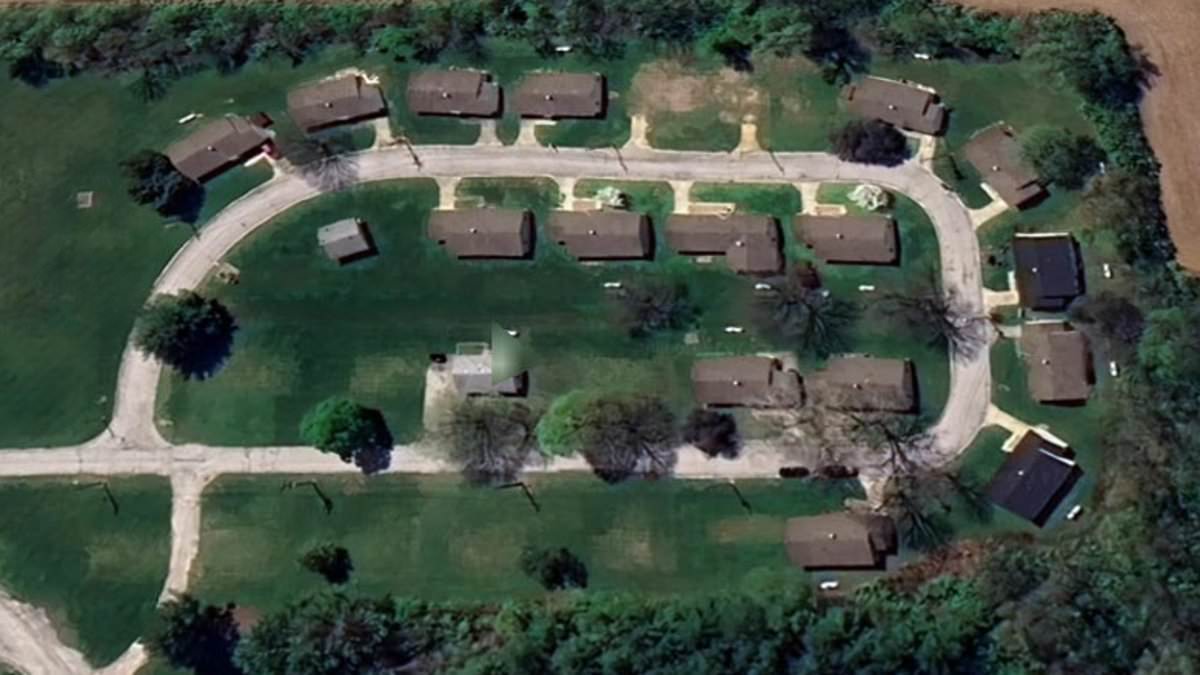Residents of a tiny town are in uproar over plans to replace a street housing disabled people with those with mental health and drug problems.
The remote neighborhood of 20 homes on Turkey Hill in Belleville, Illinois, was for 40 years used for adults with developmental disabilities.
St Clair Associated Vocational Enterprises gave them a community, often with their families, and provided them with jobs at its nearby facilities.
But the program was shut down last year after state policy changed to favor integrating disabled people into the community rather than segregating them.
SAVE lost its Illinois Department of Human Services funding as a result and discontinued the program, though it maintained its vocational day programs.
With the homes sitting empty, SAVE made a deal with Comprehensive Behavioral Health Center to house its clients in 15 of the 17 remaining buildings.
CBHC has a $537,000 federal Department of Housing and Urban Development grant to provide low-income housing to people with behavioral disabilities.
The people who would move in include those with mental illness, substance abuse problems, homelessness, or struggling with other crises.
‘Our mission is to provide quality individualized essential services for people in need of emotional, rehabilitative and social support, on a twenty-four (24) hour basis, in the least restrictive environment,’ its website reads.
However, rumors ran like wildfire through nearby neighborhoods who originally thoughts the homes would house migrants from Chicago.
When they discovered who would actually be moving in, they instead feared an influx of violence into their community.
‘I worry about more than anything are drive-by shootings or people getting into fights, and then you have gunfire going off,’ Ginger Miller, who lives nearby, told the Belleville News-Democrat.
‘I know the Freeburg police don’t have the manpower to patrol it regularly, and our county police are already stretched thin.’
Frank Heiligenstein, who lives in nearby Freeburg, runs the Citizens Federation of St. Clair County and put the issue on the agenda for its meeting on Wednesday.
He originally titled it ‘the relocation of migrants from Chicago to the Turkey Hill SAVE site’ until he learned the truth.
‘We might have been better off with migrants coming in because they aspire to go to work someplace,’ he said.
‘We have several facilities out here… that use migrants, legally and illegally. Some of them have to use them to sustain their operations.’
SAVE executive director Paul Wibbenmeyer said leasing the homes to CBHC would give the organization some income and still help people.
‘The homes will be put to a use that isn’t very different from what we’ve done in the past. We served a population that had challenges,’ he told the newspaper.
‘The people that the HUD grant is designed to assist have challenges of their own.’
CBHC executive director Joe Harper said the people who would move in were already in the community and needed its help.
‘We’re attempting to help them by giving them a stable place to live so they can become contributing members of the community,’ he said.
Wibbenmeyer said CBHC would have an employee on sight at all times, and more than one much of the time.
The group was looking into providing a shuttle bus to move residents in an out of the isolated neighborhood, and some may have their own cars.
CBHC provides therapeutic counseling, psycho-social testing, individual and group therapy, crisis intervention, consultation, community intervention, psychiatric evaluation, case management services, referrals, and outreach services.
Other services include drug treatment, teen-parenting classes, and transition from homelessness.
The small, basic-build frame houses were built to house personnel at a US Air Force radar base in the 1950s and 60s.
The government let SAVE use it in 1975 and later gifted it the land and buildings.
SAVE has warehouses and assembly and packaging plants nearby where disabled clients, both residents and those who just come for the day, lean vocational skills and work for pay.
